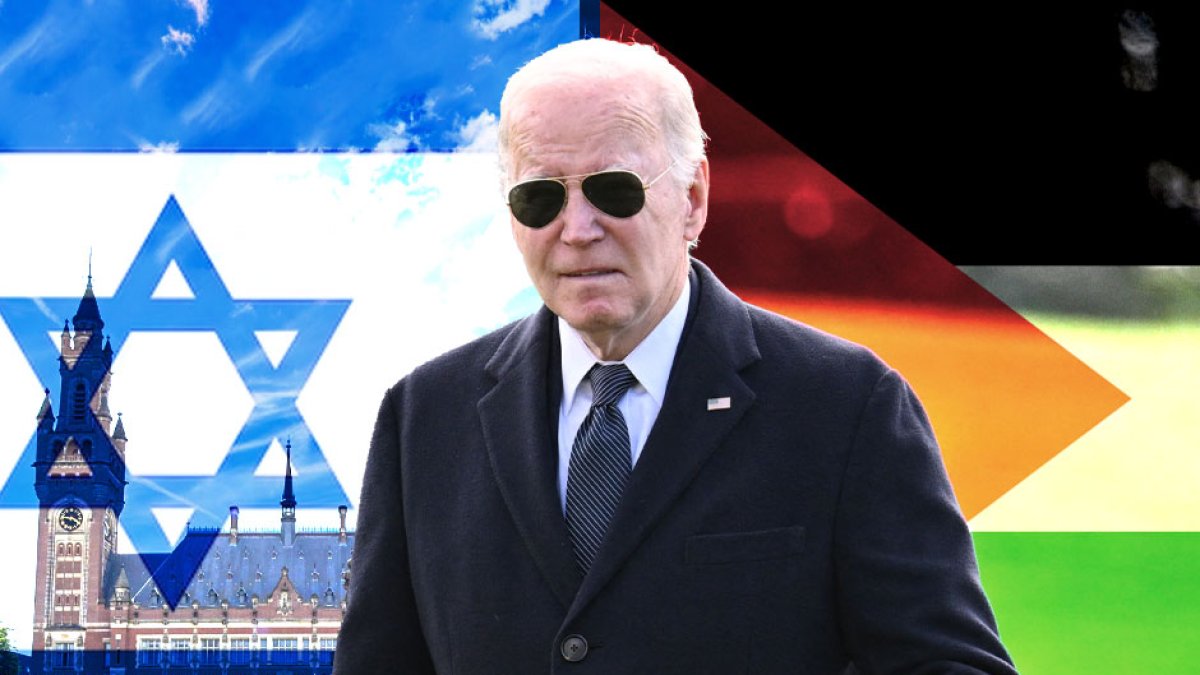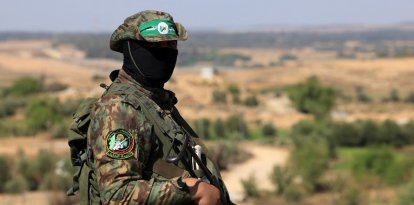From the White House to The Hague, the international community tightens its siege against Israel
While the Biden Administration takes a historic turn in its relations with Jerusalem at the United Nations Assembly, the hearings in The Hague continue this week.

(Mandel NGAN / AFP)
The siege of the international community against Israel gains momentum this week with the last minute incorporation of the United States to the requests for a ceasefire in Gaza. The Biden Administration's decision to toughen its tone before the United Nations coincides with the resumption of hearings at the International Court of Justice in The Hague over accusations against Israel of illegally occupying territories in the West Bank.
This same Tuesday, the United Nations Security Council will vote on a resolution presented by Algeria, a temporary member of this conclave. The Algerian government, of an Arab socialist nature and close to Russia, demands "an immediate humanitarian ceasefire that must be respected by all parties" and opposes "the forced displacement of the Palestinian civilian population."
The Algerian resolution appears as the Government of Benjamin Natanyahu prepares to enter Rafah, the last enclave in the Gaza Strip that had until now escaped the military incursions of the Israeli Defense Forces.
The United States is expected to veto this Algerian resolution, which it considers an obstacle to obtaining an agreement for the release of the hostages remaining in the hands of Hamas in Gaza. However, the Biden Administration announced its own ceasefire resolution. This marks a shift in the White House's stance toward Israel. It is the latest stage in a series of warnings that Joe Biden has been giving Netanyahu since the beginning of the conflict in the Strip.
Until now, the Democratic Administration had avoided talking openly about a ceasefire, but the expectations of Democratic voters has weighed in on the Government's position in an election year. "I have had extensive conversations with Netanyahu in recent days," Biden said in relation to the resolution before the UN. "And I have defended - I am very convinced of this - that there has to be a temporary ceasefire to remove the prisoners, to remove the hostages. And that is underway."
Hearings in The Hague
Meanwhile, the International Court of Justice in The Hague is the scene of hearings for accusations against Israel of illegally occupying Palestinian territories in the West Bank. This Tuesday the envoys of South Africa, Algeria, Saudi Arabia, the Netherlands, Bangladesh and Belgium will appear before the court's panel of magistrates.
A day earlier, the Palestinian Minister of Foreign Affairs, Riad Malki, accused the Israeli Government of carrying out a system of apartheid in the West Bank and in the territories over which the Palestinian Authority denounces occupation. It is a thesis to which the Government of South Africa, one of the leading voices in the international justice process, adheres to unconditionally.
Representatives of 51 States will testify before the International Court of Justice in the coming days to present their arguments before the panel of judges. This is the first time in history, since the 1967 Six-Day War, that it has been challenged in an international court.

























